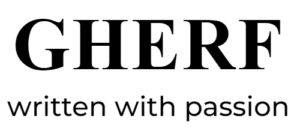Impulsive buying refers to unplanned and irrational purchases made under the influence of the moment or emotions, without carefully considering whether we truly need the product or service. These purchases are often motivated by impulses, desires, or emotional states such as stress, boredom, happiness, or even sadness.
Impulsive buying characteristics
Impulsive buying has several characteristics, including those found in the following list:
- Lack of planning: Impulsive buying often occurs without prior preparation or planning. An individual might see a product or an advertisement that piques their interest and decide to buy it on the spot.
- Quick decisions: Impulsive buying involves making rapid decisions, without allowing enough time to evaluate whether the product is truly necessary or offers real value.
- Emotional influence: Strong emotional states, such as enthusiasm or stress, can influence buying decisions. People may purchase things to feel better or to reward themselves.
- Advertising and marketing: Attractive advertisements and marketing techniques can play a significant role in triggering impulsive buying. Time-limited promotions or presenting products in a highly favorable light can lead people to buy on the spot.
- Unnecessary expenses: Often, impulsive buying results in purchases that ultimately aren’t as useful or necessary as they initially seemed. These expenses can impact personal budgets and lead to financial stress.
- Subsequent regrets: Once the initial emotional effect fades, individuals may come to regret impulsive purchases and realize they didn’t truly need the product or could have found a better alternative.
Impulsive buying and emotional stability / depression
To avoid impulsive buying and make more informed decisions regarding spending, it’s important to be aware of emotional impulses and create strategies to better manage your finances and maintain self-control in the face of unplanned buying temptations. However, it’s crucial to understand that there’s a close link between impulsive shopping, emotional stability, and depressive states. This connection is complex and can vary depending on the individual and circumstances. As a result, it’s important to consider certain aspects that can be explored:
- Emotional stability: Individuals with low emotional stability or those going through periods of stress, anxiety, or emotional disorders might be more inclined to engage in impulsive buying as a way to cope with these emotions. Shopping can provide a temporary sense of satisfaction and reward, helping to alleviate or avoid emotional discomfort. However, this satisfaction is often short-lived and can lead to feelings of guilt or regret later on.
- Depression: In cases of depression, impulsive buying might be used as a means to compensate for the lack of joy or pleasure in other aspects of life. Individuals facing depression may seek satisfaction in material purchases, though this can be only temporary and doesn’t significantly contribute to improving long-term emotional well-being.
- Compulsivity: Impulsive buying can also be linked to compulsive or obsessive behaviors. Individuals dealing with compulsive disorders might feel an uncontrollable need to shop, even if those purchases aren’t justified or necessary. This behavior can be a way to cope with anxiety or obsessions.
- Self-reward: Impulsive buying might be perceived as a form of self-reward for individuals who feel unhappy or dissatisfied with their lives. To find joy or comfort, these individuals might resort to shopping to gain a sense of instant satisfaction.
It’s important to recognize that impulsive buying can have temporary effects on emotional states, but these effects are often superficial and short-lived. In the long run, they can lead to financial stress, feelings of guilt or regret, and the perpetuation of unhealthy behavioral patterns. If you notice that impulsive shopping or uncontrolled buying hurts your emotional or financial well-being, seeking support and discussing the matter with a specialist or therapist is advisable, as they can provide guidance and strategies to manage these behaviors.
Overcome impulsive buying
Nevertheless, the good news is that several strategies can help you overcome the issue of impulsive buying:
- Creating a budget and shopping list: Establish a monthly budget for shopping and create a shopping list before going to the stores. Stick to this list and focus only on planned purchases.
- Avoiding temptations: Avoid constant exposure to situations that might trigger impulsive buying. For instance, you can steer clear of stores or online shopping sites when feeling stressed or bored.
- The 24-hour rule: After feeling the urge to buy something, wait at least 24 hours before making a final decision. This time can help you calm down and evaluate whether the purchase is truly necessary.
- Setting priorities: Consider what you truly want in life and your long-term goals. This can help you concentrate on purchases that support these objectives and abstain from ones that have limited impact.
- Analyzing impulses: Try to identify the reasons behind the urge to buy. It could be stress, boredom, or a need for a reward. Find healthier alternatives to cope with these emotions, such as physical exercise, reading, or meditation.
- Cash payments: When you go shopping, take only the amount of money you intend to spend. Cash payments can make purchases more tangible and limit excessive spending.
- Reviewing past purchases: Reflect on past impulsive purchases and consider how you felt about them afterward. This can help you understand the negative consequences of impulsive shopping.
- Seeking alternatives: Before buying something, research alternatives and compare prices and features. This can help you make a more informed choice and avoid overspending.
- Consulting a friend: Share your intention to buy with a trusted friend or family member before purchasing. An external perspective can help you view the situation more objectively.
- Self-discipline and self-control: Ultimately, it’s about developing self-discipline and self-control. Work gradually to change your buying habits and prioritize financial and personal objectives.
Remember that letting go of impulsive buying might take time and effort, but it can yield significant benefits in managing personal finances and avoiding financial stress.

